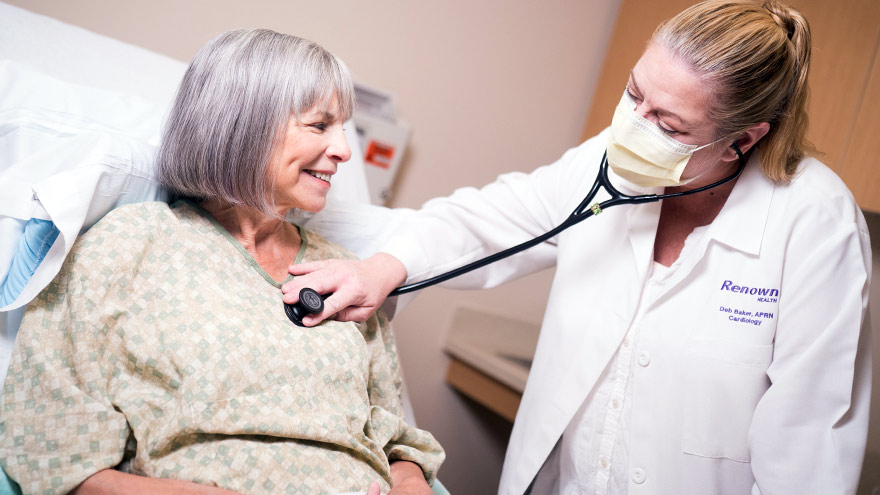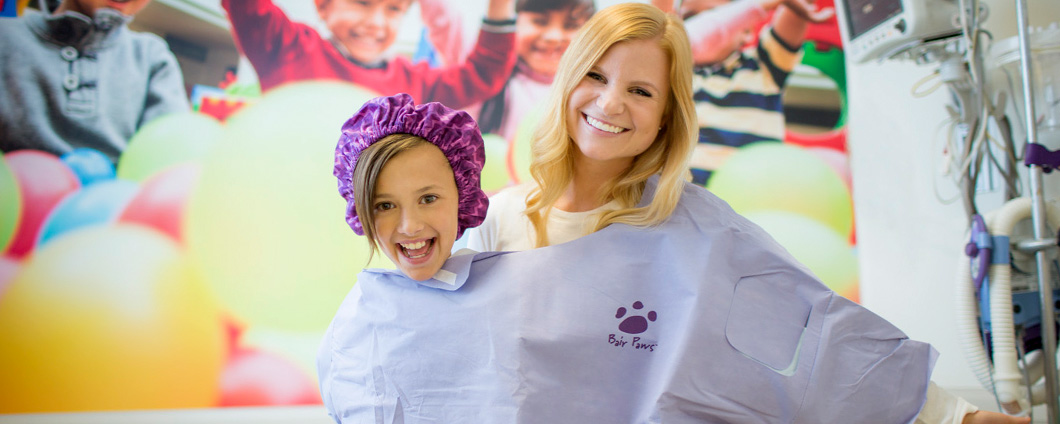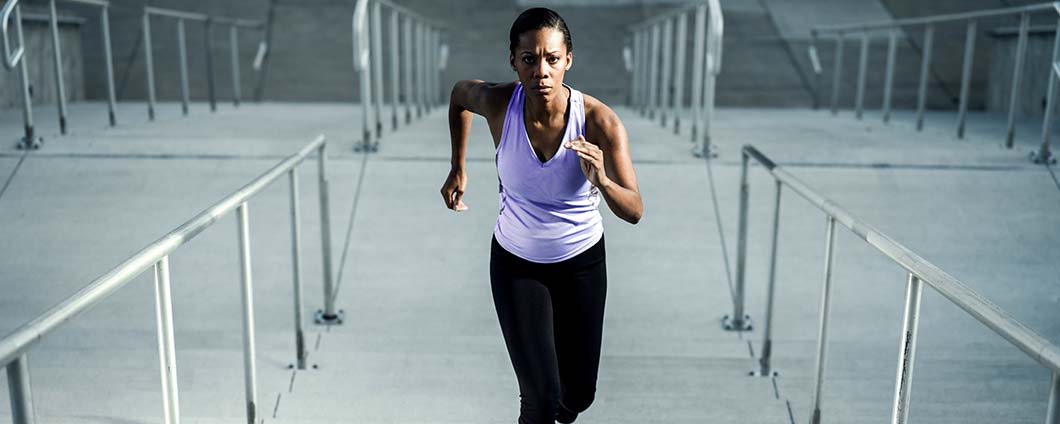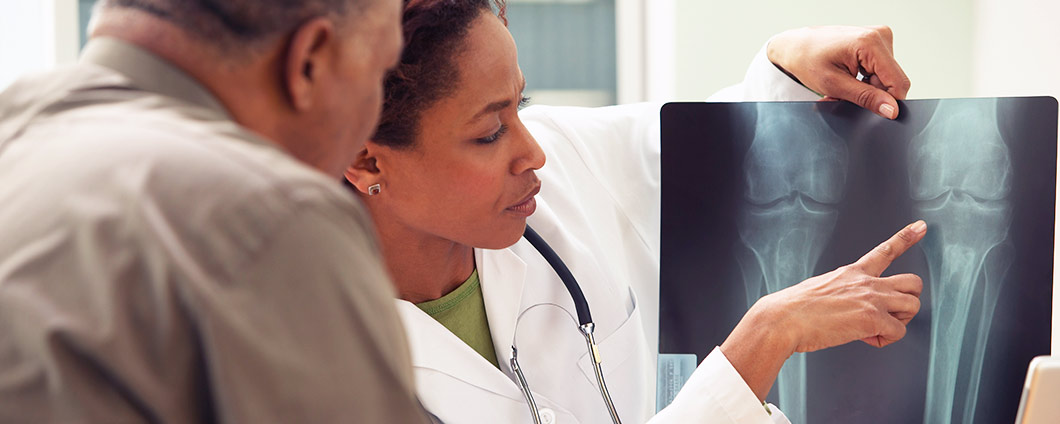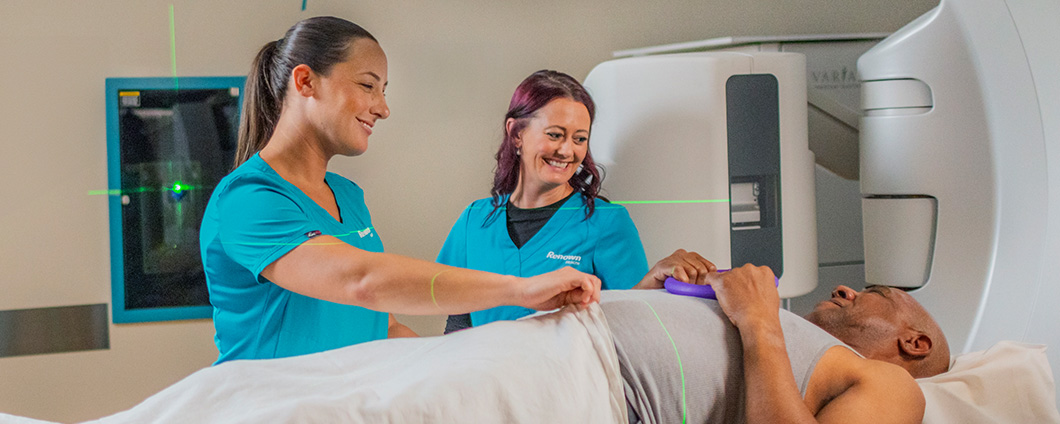Search
Results for 'doctors'
Clear-
-
14Aug
Class fee includes partner. Many things have changed since the participants in Grandparents: Getting Started raised their own children. It is important for grandparents to learn the new recommendations for care, based on research from doctors and scientists studying the physical and emotional development of infants and children. Taught by certified Safe Sitter® Instructors, participants will learn how to provide the best and safest care for their grandchildren. They will also learn the latest information on how to safely care for infants and children, how to manage the behavior of children of all ages, and essential life-saving skills such as choking rescue, first aid, CPR, and injury management. Additionally, learning tips on creating a good relationship from the start and how to respond to frequent babysitting requests will help grandparents enhance their relationship with their children and create lasting memories with their grandchildren. Please note: There is a waiting list for this class. As a courtesy to those waiting, kindly let us know if you’re unable to attend. If the class is sold out and you wish to be placed on the waiting list, please contact us. Phone: 775-982-4352 Email: Chris.Marlo@Renown.org Meeting Rooms Directions from Mill St. Parking: Classrooms 101-105, Mack Auditorium and Artisans Classrooms 107 and 108 Directions from 2nd St. Parking: Classrooms 101-105, Mack Auditorium and Artisans Classrooms 107 and 108 Children’s Hospital Baby & Family Suites(Postpartum) Children’s Emergency Department Children’s Specialty Care Labor & Delivery ( 2nd floor Sierra Tower- for tours)
Read More About Grandparents: Getting Started
-
-
-
23Oct
Class fee includes partner. Many things have changed since the participants in Grandparents: Getting Started raised their own children. It is important for grandparents to learn the new recommendations for care, based on research from doctors and scientists studying the physical and emotional development of infants and children. Taught by certified Safe Sitter® Instructors, participants will learn how to provide the best and safest care for their grandchildren. They will also learn the latest information on how to safely care for infants and children, how to manage the behavior of children of all ages, and essential life-saving skills such as choking rescue, first aid, CPR, and injury management. Additionally, learning tips on creating a good relationship from the start and how to respond to frequent babysitting requests will help grandparents enhance their relationship with their children and create lasting memories with their grandchildren. Please note: There is a waiting list for this class. As a courtesy to those waiting, kindly let us know if you’re unable to attend. If the class is sold out and you wish to be placed on the waiting list, please contact us. Phone: 775-982-4352 Email: Chris.Marlo@Renown.org Meeting Rooms Directions from Mill St. Parking: Classrooms 101-105, Mack Auditorium and Artisans Classrooms 107 and 108 Directions from 2nd St. Parking: Classrooms 101-105, Mack Auditorium and Artisans Classrooms 107 and 108 Children’s Hospital Baby & Family Suites(Postpartum) Children’s Emergency Department Children’s Specialty Care Labor & Delivery ( 2nd floor Sierra Tower- for tours)
Read More About Grandparents: Getting Started
-
-
-
26Jun
Class fee includes partner. Many things have changed since the participants in Grandparents: Getting Started raised their own children. It is important for grandparents to learn the new recommendations for care, based on research from doctors and scientists studying the physical and emotional development of infants and children. Taught by certified Safe Sitter® Instructors, participants will learn how to provide the best and safest care for their grandchildren. They will also learn the latest information on how to safely care for infants and children, how to manage the behavior of children of all ages, and essential life-saving skills such as choking rescue, first aid, CPR, and injury management. Additionally, learning tips on creating a good relationship from the start and how to respond to frequent babysitting requests will help grandparents enhance their relationship with their children and create lasting memories with their grandchildren. Please note: There is a waiting list for this class. As a courtesy to those waiting, kindly let us know if you’re unable to attend. If the class is sold out and you wish to be placed on the waiting list, please contact us. Phone: 775-982-4352 Email: Chris.Marlo@Renown.org Meeting Rooms Directions from Mill St. Parking: Classrooms 101-105, Mack Auditorium and Artisans Classrooms 107 and 108 Directions from 2nd St. Parking: Classrooms 101-105, Mack Auditorium and Artisans Classrooms 107 and 108 Children’s Hospital Baby & Family Suites(Postpartum) Children’s Emergency Department Children’s Specialty Care Labor & Delivery ( 2nd floor Sierra Tower- for tours)
Read More About Grandparents: Getting Started
-
-
-
31Jul
Class fee includes partner. Many things have changed since the participants in Grandparents: Getting Started raised their own children. It is important for grandparents to learn the new recommendations for care, based on research from doctors and scientists studying the physical and emotional development of infants and children. Taught by certified Safe Sitter® Instructors, participants will learn how to provide the best and safest care for their grandchildren. They will also learn the latest information on how to safely care for infants and children, how to manage the behavior of children of all ages, and essential life-saving skills such as choking rescue, first aid, CPR, and injury management. Additionally, learning tips on creating a good relationship from the start and how to respond to frequent babysitting requests will help grandparents enhance their relationship with their children and create lasting memories with their grandchildren. Please note: There is a waiting list for this class. As a courtesy to those waiting, kindly let us know if you’re unable to attend. If the class is sold out and you wish to be placed on the waiting list, please contact us. Phone: 775-982-4352 Email: Chris.Marlo@Renown.org Meeting Rooms Directions from Mill St. Parking: Classrooms 101-105, Mack Auditorium and Artisans Classrooms 107 and 108 Directions from 2nd St. Parking: Classrooms 101-105, Mack Auditorium and Artisans Classrooms 107 and 108 Children’s Hospital Baby & Family Suites(Postpartum) Children’s Emergency Department Children’s Specialty Care Labor & Delivery ( 2nd floor Sierra Tower- for tours)
Read More About Grandparents: Getting Started
-
-
-
11Sep
Class fee includes partner. Many things have changed since the participants in Grandparents: Getting Started raised their own children. It is important for grandparents to learn the new recommendations for care, based on research from doctors and scientists studying the physical and emotional development of infants and children. Taught by certified Safe Sitter® Instructors, participants will learn how to provide the best and safest care for their grandchildren. They will also learn the latest information on how to safely care for infants and children, how to manage the behavior of children of all ages, and essential life-saving skills such as choking rescue, first aid, CPR, and injury management. Additionally, learning tips on creating a good relationship from the start and how to respond to frequent babysitting requests will help grandparents enhance their relationship with their children and create lasting memories with their grandchildren. Please note: There is a waiting list for this class. As a courtesy to those waiting, kindly let us know if you’re unable to attend. If the class is sold out and you wish to be placed on the waiting list, please contact us. Phone: 775-982-4352 Email: Chris.Marlo@Renown.org Meeting Rooms Directions from Mill St. Parking: Classrooms 101-105, Mack Auditorium and Artisans Classrooms 107 and 108 Directions from 2nd St. Parking: Classrooms 101-105, Mack Auditorium and Artisans Classrooms 107 and 108 Children’s Hospital Baby & Family Suites(Postpartum) Children’s Emergency Department Children’s Specialty Care Labor & Delivery ( 2nd floor Sierra Tower- for tours)
Read More About Grandparents: Getting Started
-
-
A Token of Appreciation: Renown’s Employee Giving Program
Pictured above from left to right: Jessica Bajwa, Nancy Bell, Laurie Goodman and Troy Fernandez As we approach the holidays and the season of giving, we reflect on the generosity and kindness that our employees here at Renown embody. Since 2007, Renown employees have donated $2,931,018 through Renown’s Employee Giving Program. This program provides our staff with the opportunity to make a difference by funding advanced equipment, research, community health initiatives, professional training and more. Regardless of the dollar amount, every contribution has a meaningful impact and remains entirely within Renown to support our mission. Employees can participate in the program at any time of the year by signing up for recurring payroll deductions or by making a one-time donation of any dollar amount. They can donate to one of Renown’s top priority areas of support or a different fund of their choice. Meet Jessica, Nancy, Laurie and Troy Renown employees Jessica Bajwa, Nancy Bell, Laurie Goodman and Troy Fernandez all have their own reasons for participating in the Employee Giving Program, but they all share the same goal: To give back to their community. Jessica Bajwa has been working at Renown for about seven years. She was at an employee event five years ago and found out about the Employee Giving Program through Renown Health Foundation. They explained the different areas she could donate to and how to get signed up. When Jessica looked back on the comforting care and healing her daughter had received at Renown Children’s Hospital, she felt empowered to give back to other children and families staying at Renown, so she enrolled in recurring payroll deductions to donate to Healing Arts. “It’s so easy and convenient to sign up,” said Jessica. “It means a lot to me to give to this area where they provide a healing environment, especially for patients and families at Renown Children’s Hospital – My daughter still has a blanket they gave her when she was there,” Jessica said she likes that the Employee Giving Program allows employees to choose their area of support to donate to and donation amount. Nancy Bell said she’s proud to give back to Renown after having received a great amount of support from her coworkers during an incredibly difficult time when a family member of hers was being cared for in Renown’s ICU, just three weeks into her employment at Renown. “I had employees from not just my team but also across the organization reaching out to me and checking in to see how I was doing,” said Nancy. Nancy said she was positively impacted by that kind of support through her work family at Renown and decided to start giving back in 2011 by signing up for recurring payroll deductions to donate to the William N. Pennington Cancer Institute – to this day, she is still making donations to this area of support. When Laurie Goodman began working at Renown in 2013, Renown’s Human Resources team offered her different ways to give back as an employee. “At the time, I was often caring for foster children and seniors,” said Laurie. “My family and I have always wanted to help others in need.” Laurie had been taking care of an elderly woman who was a patient at the old Renown Skilled Nursing Facility and decided to enroll in payroll deductions to donate to this facility. When that facility closed, she received a letter asking which area she wanted to transfer her donations to, and she decided to begin donating to Renown Children’s Hospital to give back to kids in the community. “I’m fortunate for not only my employment at Renown, but my husband’s and daughter’s employment as well. As employees of Renown, we have such great jobs, benefits and opportunities, and I think we should all strive to give back to express our gratitude and appreciation.” At his employee orientation in 2012, Troy Fernandez heard about Renown’s Employee Giving Program and learned that funds were needed for individuals who needed financial support to pay for healthcare services at Renown. He knew his donations would go to a good cause and signed up for recurring payroll deductions to donate to the Greatest Need Fund. “It feels good to be able to give back to those who are less fortunate than us,” said Troy. “It was very easy to enroll in this program, and I’ve been donating to the same support area ever since.”
Read More About A Token of Appreciation: Renown’s Employee Giving Program
-
MD, APRN or PA: What's the Difference
Having a primary care provider is important and some health insurance plans even require you to select one. But does that provider need to be a doctor (MD)? The good news is your primary care provider doesn’t need to be an MD. They can be an advanced nurse practitioner (APRN) or physician assistant (PA). We’re here to explain the differences between MDs, APRNs and PAs. Have you ever called Renown Health to schedule an appointment with your doctor and the Contact Center offered you an earlier appointment with an APRN or PA? Did you wonder why? Perhaps you even declined because you were concerned about the continuity of your care, or wondered about the qualifications of the other practitioners who aren’t doctors. We’re here to answer your important questions about primary care providers and the different types. Why would I want to see anyone other than a doctor? In order to keep up with demand for primary care services and provide the highest quality care possible, Renown created care teams. This means our doctors, APRNs and PAs all work hand-in-hand to manage your health with the benefit of their combined expertise. This team approach provides you with more flexible scheduling options to see anyone on the care team, all with the same continuity of care. How qualified are APRNs and PAs to treat patients? APRNs and PAs are highly educated in medicine with a minimum of a Master of Science degree and at least six years post-high school education. Some APRNs even have doctorate degrees. Similar to doctors, both positions have a minimum number of required clinic hours and participate in continued education. Both APRNs and Pas are just as qualified as doctors (MDs and DOs) to conduct physical exams, diagnose and treat illnesses, order and interpret tests, write prescriptions and even deliver babies. There are some instances where you need a doctor, including specialized treatment of complicated or high risk conditions or surgery. Your APRN or PA will refer you to a doctor in those instances. You don’t need to worry about whom to see when – your care team will guide you based on your medical needs. If I see an APRN or PA, will my doctor know about my visit? Absolutely. The care team system ensures that everyone on your care team is aware of the details of your visit, regardless of who you’re seeing. Everything is clearly documented in your medical record so there are no gaps in care between visits. Can an APRN or PA be my primary care provider? Definitely. APRNs and PAs make excellent primary care providers and can be established with your insurance company. Learn more about the differences between doctors, APRNs, PAs and more with this handy infographic. Schedule A Doctor Visit | 775-982-5000 Renown Medical Group primary care providers provide annual exams by appointment. Our providers coordinate each patient’s medical care including checkups, immunizations, referrals to specialists, lab work, X-ray & imaging and hospital admissions. Request an Appointment
-
Child Life Program
Providing emotional support for your children, and you. It is undeniable that hospitals can be a daunting experience for all, but when a child is faced with a difficult diagnosis or staying in the hospital, it can be especially overwhelming. Fortunately, Renown Health has a team of experts called the Child Life team to help. This group of devoted healthcare providers collaborate with kids who have been admitted to the hospital, as well as children whose family member is a patient at Renown, to ensure they understand every aspect of their visit, while also letting them be kids. Child Life Specialists provide support to children and their families by: Assessing patients developmental level and tailoring interactions to each individual family need Helping children cope with worries, fears and/or separation Making doctors, needles, and tests a little less scary by creating coping plans Organizing activities in the playroom and at bedside Addressing parent and caregiver concerns Preparing patients and families for what to expect Fostering a therapeutic environment through play opportunities Offering a hand to hold during tests, procedures, and tough stuff Offering services like art, music and pet therapy Creating special memories and mementos for children and families in times of grief and loss The Child Life Program is available seven days a week at Renown Health and the team can be reached at 775-982-5173.
-
Virtual Visits
Ways to Schedule Your Virtual Visit Renown providers offer virtual visits for some appointment types, including primary care, specialty care, and urgent care – allowing you to see your provider from the comfort of your home. Urgent Care Login to MyChart to schedule a virtual urgent care visit. Click on the "Talk to a doctor" video icon within the MyChart portal to get started! Providers are available via video chat during the specified times: Monday through Friday: 9 a.m. to 6 p.m. Saturday and Sunday: 10 a.m. to 4 p.m. Log In To MyChart Primary and Specialty Care Please call 775-982-5000 to request a visit with your provider. Call Now Pediatric Care Many pediatric appointments are also available through virtual visits. Please call 775-982-5000 to request a visit with your child’s established provider. You will also need to activate MyChart Proxy to access your child’s health information within MyChart. Sign in to MyChart to request this access using these instructions. Log In To MyChart
-
Outpatient Physical Therapy
Whether you need to recover from an injury on the field, have a painful condition, or continued weakness or disability after receiving inpatient hospital care, we have your back. The Renown outpatient physical therapy and sports medicine teams can help you heal and get back in the game! With hands-on, individualized and non-surgical treatments, our experts offer convenient appointments and direct one-on-one treatment with a therapist. Our care team will partner with you to help improve your function, quality of life and prevent other medical complications that may arise. Extended morning and evening time are available and most insurances are accepted. Please note that a referral is needed from your doctor before scheduling an appointment. Conditions We Treat Sports injuries Work-related injuries Brain injuries (including stroke) Spinal cord injuries Neurodegenerative diseases Inflammatory diseases Amputations Neuropathic pain Back, neck and joint pain Sprains and strains Torn ligaments Overuse injuries Carpal Tunnel Syndrome Balance, dizziness, vertigo and vestibular problems Ataxia (lack of coordination) Arthritis Post-operative conditions Lymphedema Post-concussive syndromes
-
Mako SmartRobotics
Personalized Robotic Surgery Renown Health is proud to offer Mako SmartRobotics™, an innovative solution for those suffering from painful arthritis in the knee or hip. Each patient is unique and can experience joint pain for different reasons. It's important to talk to your doctor about the reason for your joint pain so you can understand the treatment options available to you. It is common for patients to try medication and other treatments to treat their knee or hip pain. If you haven't experienced the adequate relief with those treatment options, you may be a candidate for Mako SmartRobotics™ for Total Knee, Total Hip, or Partial Knee replacement. How Mako SmartRobotics™ Works Mako SmartRobotics™ uses 3D CT-based planning software so your surgeon can create a personalized surgical plan. This 3D model is used to preplan and assist your surgeon in performing your joint replacement surgery. In the operating room, your surgeon follows your personalized surgical plan while preparing the bone for the implant. The surgeon guides Mako's robotic arm within the predefined area, and Mako's AccuStop™ technology helps the surgeon stay within the planned boundaries that were defined when the personalized preoperative plan was created. By guiding your doctor during surgery, Mako's AccuStop™ technology allows your surgeon to cut less by cutting precisely what's planned to help protect your healthy bone. It's important to understand that the surgery is performed by an orthopedic surgeon who guides Mako's robotic arm during the surgery to position the implant in the knee and hip joints. Mako SmartRobotics™ does not perform surgery, make decisions on its own or move without the surgeon guiding it. Mako SmartRobotics™ also allows your surgeon to make adjustments to your plan during surgery as needed. Why Choose Mako SmartRobotics™ In clinical studies, compared to manual surgery, Mako SmartRobotics™ procedures resulted in: More accurate implant placement compared to manually surgery, which may result in improved outcomes and functioning of the joint. Less pain in the days and weeks following surgery. A shorter hospital stay. Quicker recovery, where 9 out of 10 patients were walking without aid, such as a cane or walker, three weeks after surgery. 97% of patients satisfied or very satisfied 10 years after surgery.
-
Radiation Therapy
Renown Health's Institute for Cancer has the most advanced radiation therapy system of its kind and the first program in the region with American College of Radiology (ACR-RO) accreditation. To serve you, our certified team of experts includes highly trained doctors, medical physicists, dosimetrists, radiation therapists, and registered nurses. What is Radiation Therapy? A common form of cancer treatment, radiation therapy uses high-energy particles to eliminate cancerous cells and may be used in conjunction with other treatments, like chemotherapy or surgery. What to Expect Treating cancer with radiation is a process that usually lasts about five to eight weeks. The first two appointments are consultation, simulation, and mapping, which help plan treatment. Short, daily radiation treatment appointments follow these. Why Choose Renown? Renown's state-of-the-art Varian TrueBeam radiation therapy system delivers treatment so precisely; it reaches sub-millimeter levels of accuracy. In addition, unlike other treatment centers in the region, Renown has the technology to deliver radiation from 360 degrees around the patient's body, allowing us to target cancerous cells and save healthy tissue. Consultation The first appointment is called the consultation. A radiation oncologist meets with the patient to discuss treatment options, perform a physical examination and answer questions. Simulation and Mapping Since radiation therapy aims to target cancer while sparing healthy tissue, to maintain body position and stillness is essential. A CT scan is used to pinpoint cancer's exact location in the patient's body during the simulation and mapping appointment. Doctors refer to these scans as they work together to craft a treatment plan. Patients are fitted with immobilization devices that keep the body still during treatment. In addition, brain and head, and neck cancer patients are equipped with a mesh mask to keep the head and neck in position. For cancers elsewhere in the body, patients are fitted with foam molds that form to the body. These personalized molds are kept on hand for use during daily radiation treatments. Additionally, the radiation therapist creates several pinpoint-sized tattoos on the patient's skin to ensure each daily treatment targets the same area. These tattoos are permanent but small enough to go unnoticed by others. Daily Radiation Treatments At each treatment appointment, a radiation therapist helps the patient.

